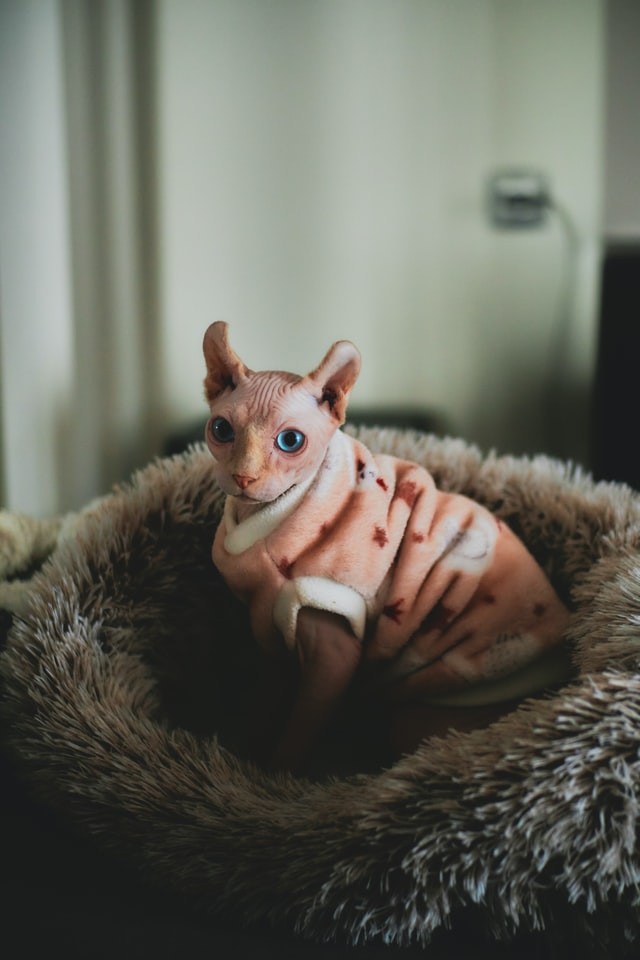Exposure to winter’s dry, cold air and chilly rain can cause chapped paws and itchy, flaking skin. But these aren’t the only discomforts domesticated animals can suffer. Here’s how to prevent cold weather dangers from affecting your pet’s health.

Repeatedly coming out of the cold into the dry heat of your home can cause itchy, flaking skin. Keep your home humidified. If your pet is wet, towel-dry them as soon as they come inside, paying special attention to their feet and between the toes.
Never shave your dog down to the skin in winter, as a longer coat will provide more warmth. If your dog is long-haired, simply keep them trimmed. If your dog is short‑haired, consider getting a coat or sweater with a high collar or turtleneck with coverage from the base of the tail to the belly.
Check for cracks in paw pads or redness between the toes. Massaging paw protectants into paw pads before going outside can help protect them.
Bath your pets as little as possible during cold spells. Washing too often can remove essential oils and increase the chance of developing dry, flaky skin. If your pooch must be bathed, ask your vet to recommend a moisturizing shampoo and/or rinse.
Pets burn extra energy by trying to stay warm in the wintertime. Feeding your pet a little bit more during the cold weather months can provide much-needed calories, and making sure she has plenty of water to drink will help keep her well-hydrated and her skin less dry.
Make sure your companion animal has a warm place to sleep, off the floor and away from all drafts. A cozy dog or cat bed with a warm blanket or pillow is perfect. Don’t leave pets outdoors when the temperature drops, keep your pets inside with you and your family. Dogs are happiest when taken out frequently for walks and exercise but keep them inside the rest of the time.

Cars are one of many hazards to small animals. Warm engines in parked cars attract cats and small wildlife, who may crawl up under the hood. To avoid injuring any hidden animals, bang on your car’s hood to scare them away before starting your engine.
Be sure your horses have access to a barn or a three-sided run-in so they can escape the wind and cold. While not all horses will need to be blanketed, blankets will help horses keep warm and dry, especially if there is any rain. If you’ve body-clipped your horses, keep them blanketed throughout the winter.
Remember, if it’s too cold for you, it’s probably too cold for your pet, so keep your animals inside. If left outdoors, pets can freeze, become disoriented, lost, stolen, injured or killed. In addition, don’t leave pets alone in a car during cold weather. Cars can act as refrigerators that hold in the cold and cause animals to freeze to death. ■
Want to help? Log onto AWLQ – ASK THE VETS!
Like pet stories? Then click here

Editor for Silver Magazine Gold Coast

